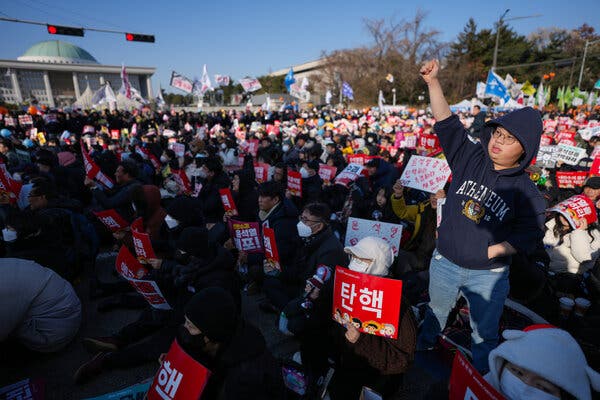Germany, Australia, Canada and the Netherlands said they will take the Taliban to the U.N.’s highest court because of its harsh restrictions on Afghan women.

Four countries on Wednesday accused the Taliban of “gross and systematic” violations of the U.N. treaty on women’s rights in Afghanistan, saying they would take the group to the world’s highest court because of its harsh, widely criticized restrictions on women.
The plan was described by foreign ministers from Germany, Australia, Canada and the Netherlands at the United Nations in New York, where the General Assembly was meeting on Wednesday. The ministers said they intended to take the Taliban to the International Court of Justice, the top U.N. court.
The treaty, regarded as an international bill of rights for women, was signed in 1979 and includes most of the world’s nations, including Afghanistan, which joined in 2003. (The United States is one of the few countries that has not ratified it.)
Since returning to power in 2021, the Taliban has systematically rolled back many of the rights that women won during the 20-year U.S. occupation. Last month, the Taliban released a 114-page manifesto codifying its restrictions on women, which include barring them from secondary schools or universities, working for aid organizations and traveling any significant distance without a male relative. Human rights monitors say Afghanistan is the most restrictive country in the world for women, and the only country in the world where girls are barred from education beyond the sixth grade.
Taliban authorities have dismissed criticism of the restrictions and defended its policies, saying they are grounded in the Islamic teachings that govern the country.
At the United Nations on Wednesday, the four foreign ministers condemned what they called “the gross and systematic human rights violations and abuses in Afghanistan, particularly the gender-based discrimination of women and girls.”



